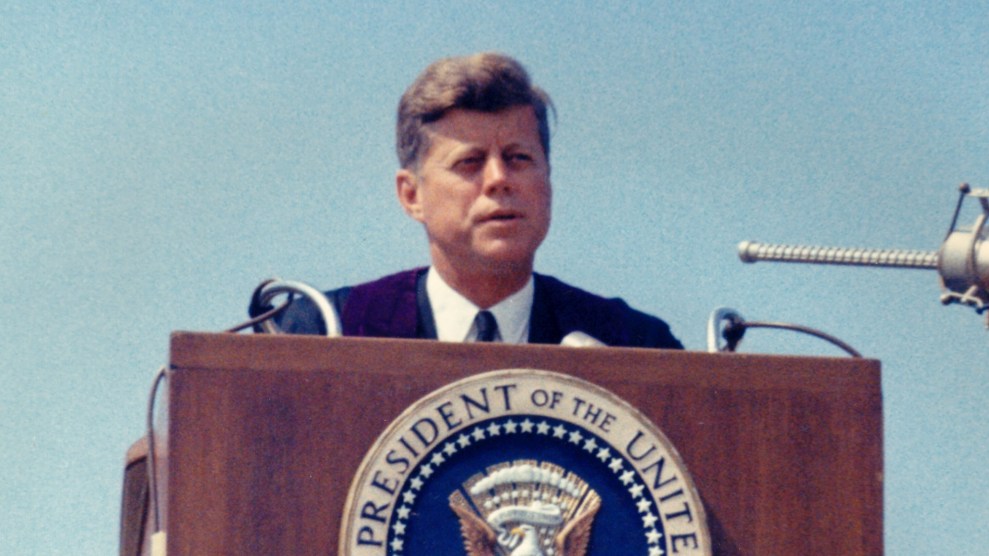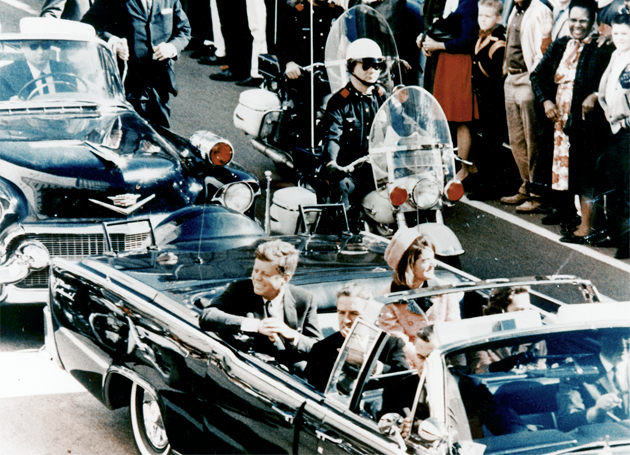
Arnie Sachs/CNP/Zuma
The Biden administration announced just before 9:30 pm on Friday night that it would once again delay the long-anticipated release of secret documents surrounding the 1963 assassination of President John F. Kennedy.
The decision stands in contrast to two other moves by the administration favoring the release of potentially sensitive but historically important tranches of documents held in the governments’ archives, surrounding Trump’s actions on January 6, 2021, and the attacks of September 11, 2001.
The administration cited concerns raised by the Archivist of the United States that the pandemic had made a “significant impact” on federal agencies’ ability to review the JFK documents for military or defense secrets that might still be relevant after well over a half-century. The remaining files are now slated to be shared in two batches—one expected later this year, and another in late 2022.
While Congress passed legislation in 1992 intending to free all JFK records by 2017, the process is still not complete. That year, President Donald Trump agreed to demands from Mike Pompeo, then his CIA director, to withhold a set of documents until October 26, 2021—the deadline the Biden administration just blew past.
Kennedy was shot dead as his motorcade traveled through downtown Dallas, Texas, on November 22, 1963. A week later, President Lyndon B. Johnson appointed a presidential commission to investigate the tragedy, with its findings published the following year. The Warren Commission report concluded that Lee Harvey Oswald had acted alone in killing the president and that Jack Ruby, who killed Oswald two days later, also acted alone. The commission’s findings left many Americans unsatisfied, and kindled a wave of conspiracy theories that have plagued any efforts to declare the matter settled.
Feeding those conspiracies was the roughly 5 million pages of assassination-related records the federal government kept shrouded in secrecy through the early 1990s. A 1991 Oliver Stone film about the assassination ignited public outrage over the documents’ status, prompting Congress require they all eventually be released, with exceptions only for the “rarest cases” that could compromise national security.
The CIA holds 70 percent of the remaining unreleased records, many of which reportedly relate to clandestine US intelligence operations in Cuba in the years leading up to Kennedy’s death, the Intercept reported. The U.S. government attempted to assassinate Cuban leader Fidel Castro around the time of Kennedy’s murder, and CIA propaganda had linked Oswald to Cuban sympathies.
What remains unknown about the 35th president’s death has sparked decades of debate and distrust. Surely, further delay won’t spur any more.












